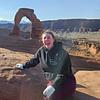Take a photo of a barcode or cover
This was a dystopian young adult novel about the power of language. It comes at the whole dystopian thing from a different angle and I enjoyed the way it really focused on how language is such a large part of our human condition.
adventurous
emotional
reflective
fast-paced
Plot or Character Driven:
Plot
Strong character development:
Yes
Loveable characters:
Yes
Diverse cast of characters:
Yes
Flaws of characters a main focus:
No
Interesting premise but the writing didn't intrigue me.
[3.5] A different take on the dangers of post apocalyptic life. Is there such a thing as too many words? Letta ends up taking on the challenge of fighting John Noa who runs the city of Ark to save words.
If you are a fan of The Giver by Lois Lowry you will thoroughly enjoy this novel about a young girl training to be the next Wordsmith in a dystopian community called ARK where the people can speak only 500 words.
While The Wordsmith was an enjoyable and engaging read, nothing about it was new or original. I felt like I've read the very same book in different forms a million times. I enjoyed the characters, and thought the author did a good job with them, as well as the concept behind the story, but the author's writing left something lacking.
This dystopian story has a great premise but I felt that it was slow and underdeveloped in several areas. So much potential, but just okay.
The concept was interesting but the explanation of how we got to this point came faaaaaaaar too late in the book. More than halfway, and to me, the world building was everything that was missing from this story. Whats a gavver? How do they regulate the speech limit? How did Letta get the job of wordsmith apprentice? Who IS Noa? How did he come to power? Why has no one opposed him before? No one seems to fear him? What would he gain with a village of illiterate people? Why on Earth would older people who remembered all the old words go along with this? Why do they get words on paper? Doesn't that mean they can read? Why would they need to read if they can't use words? I had so many questions! In the bad way. Holes in the story.
I think with the current day and times, for me to connect and really buy into this society, there needed to be a VERY firm and clear reason why and how this 500 words or less society came to be right from the get go. Or at least in the first third of the book. Without a solid handle on the situation, I felt myself reading with complete disbelief that it could ever be plausible. So. I didn't buy into it but it was otherwise decently interesting. Take that how you will.
*I received a copy from Netgalley and the publisher in exchange for an honest review*
I think with the current day and times, for me to connect and really buy into this society, there needed to be a VERY firm and clear reason why and how this 500 words or less society came to be right from the get go. Or at least in the first third of the book. Without a solid handle on the situation, I felt myself reading with complete disbelief that it could ever be plausible. So. I didn't buy into it but it was otherwise decently interesting. Take that how you will.
*I received a copy from Netgalley and the publisher in exchange for an honest review*
I picked this book out for my daughter based on the description, and she ended up not liking it. I was shocked, so I gave it a quick read when she was done. I should learn to trust her judgment. The premise of the book itself—John Noa, leader of a surviving enclave of humans in a post-global warming society, gradually pares down legal words further and further with the ultimate goal of taking away language from humans altogether—makes for a head-scratching goal, especially for young adults. The story itself would have been improved with moments of levity or humor, both of which were noticeably absent. On top of the confusing plot and gloomy tone, truly violent things happen—a father figure/mentor has all his fingernails ripped off while being tortured, for example. While it led to some interesting discussions about the role of language in or world, I ended up on board with my daughter’s initial assessment after all.
The List takes place in what is left after the world ends through global warming. The ice caps melted and flooded the world (known as the Melting). Very little is left, but one man, John Noa, saw the end coming and built a community to survive the end (Ark). In Ark, words are limited, in fact there are only 500 allowable words people can speak without getting in trouble. Unnecessary words and language have been eliminated. Letta is the apprentice to the Wordsmith Benjamin who keeps The List of approved words. She has to carefully copy out The List and distribute it to teachers and masters so that the young know what words they can speak. Different jobs get different lists of specialized words and the wordsmith has to keep those as well. Benjamin also goes out into the wild to find any words left from the world before.
When Benjamin disappears, Letta becomes the wordsmith. Around the same time she helps Marlo, a desecrator (someone who promotes freedom and the arts), who is being hunted by the gavvers (police force). She becomes a lot more knowledgeable about the world outside of Ark and Noa's teachings. She also learns of a sinister plot by Noa to rob humanity of its words altogether. Now Letta must decide who's side she is on and what she wants the future to look like.
Part of me really loved the idea of this book and part of me wished for more in its execution. I liked the idea of the world ending in flood and a group of survivors making the best of what is left. I wish there was a bit more world-building. Forde does a great job describing the end of the world and what led up to it. She doesn't do so great a job of showing how Noa became so powerful and how he got people to follow him or how he built the society of Ark. Noa seemed more like a crazy recluse than a prophet so I had no idea why so many followed him. Then there is the fact that this story takes place a relatively short time after the flooding of the world (years not decades have passed). So why did people give in to the loss of language and freedom so easily? I thought Forde did a good job describing why Noa wants to get rid of language and his motivation even if it didn't really make sense; however, the motivation of others to go along with it is not as clear. I also thought the ending was really rushed and didn't make the most sense. However, I loved Letta as a character and appreciated her struggle to think on her own and make her own decisions. I just wish the story would have been a bit better and a bit less predictable.
Thank you to Netgalley and the publisher for a copy.
When Benjamin disappears, Letta becomes the wordsmith. Around the same time she helps Marlo, a desecrator (someone who promotes freedom and the arts), who is being hunted by the gavvers (police force). She becomes a lot more knowledgeable about the world outside of Ark and Noa's teachings. She also learns of a sinister plot by Noa to rob humanity of its words altogether. Now Letta must decide who's side she is on and what she wants the future to look like.
Part of me really loved the idea of this book and part of me wished for more in its execution. I liked the idea of the world ending in flood and a group of survivors making the best of what is left. I wish there was a bit more world-building. Forde does a great job describing the end of the world and what led up to it. She doesn't do so great a job of showing how Noa became so powerful and how he got people to follow him or how he built the society of Ark. Noa seemed more like a crazy recluse than a prophet so I had no idea why so many followed him. Then there is the fact that this story takes place a relatively short time after the flooding of the world (years not decades have passed). So why did people give in to the loss of language and freedom so easily? I thought Forde did a good job describing why Noa wants to get rid of language and his motivation even if it didn't really make sense; however, the motivation of others to go along with it is not as clear. I also thought the ending was really rushed and didn't make the most sense. However, I loved Letta as a character and appreciated her struggle to think on her own and make her own decisions. I just wish the story would have been a bit better and a bit less predictable.
Thank you to Netgalley and the publisher for a copy.





